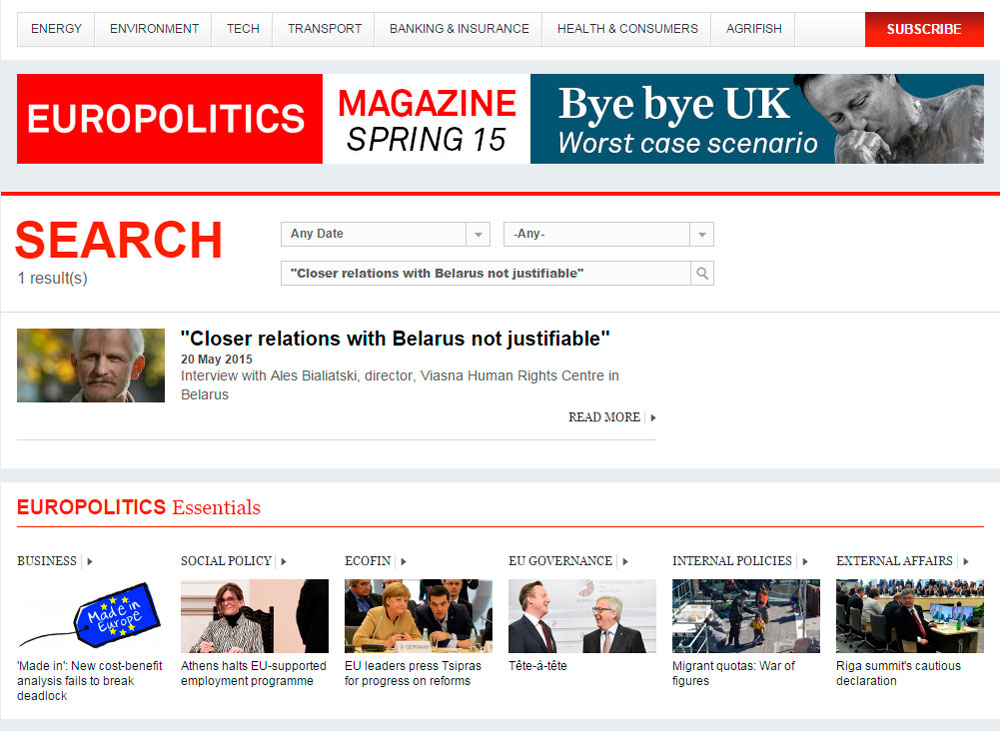Ales Bialiatski: “Closer relations with Belarus not justifiable”
Interview with Ales Bialiatski, director, Viasna Human Rights Centre in Belarus
By Antoine Jacob in Riga
Political activist Ales Bialiatski, who was imprisoned for over two years (released in 2014), is also vice president of the International Federation for Human Rights. He spoke to Europolitics on the eve of the Eastern Partnership summit in Riga.
What do you think of the closer links currently being established between the EU and Belarus?
I am sceptical. Closer relations are not currently justifiable since there have not been any major changes to the regime in Belarus: what is being said by the Ministry of Foreign Affairs does not correspond to the reality on the ground. Belarus is one of the last countries to uphold the death penalty, civil society is oppressed, and there are six political prisoners. Moreover, we are expecting tougher repressive measures against civil society in the run-up to the presidential elections in November. Short-term detentions are still a common tool for repression, and the law allows the minister of information to shut down any web-site without needing a court order. Over the last few days, sites have been warned by the authorities; the next step could be that these sites are permanently shut down.
What do you expect from the EU, what should be its policy on Belarus?
EU policy should be based on principles and conditionality. Geopolitical interests should not be priority, nor should they marginalise the issue of human rights. We do not want Belarus to find itself in a similar position to Azerbaijan, which has more than 100 political prisoners, and where civil society is repressed. I also want to emphasise that civil society is a legitimate and desirable partner in discussions between Belarus and the EU. It is the bridge to Belarusian citizens, since it is a matter of passing on values such as democracy, freedom of expression, tolerance and human rights. We would therefore like programmes under the Eastern Partnership to concentrate on civil society involvement, and independent media.
What do you think of the negotiations underway to allow short-term visas to be given to Belarusian citizens who want to travel to the EU?
This would send an important signal to all Belarusian citizens, showing them that the EU is open – particularly within the context of Russia’s propaganda, to which the population in Belarus is especially exposed, and which paints the EU in a very negative light. Therefore, direct contact with citizens is crucial.


















